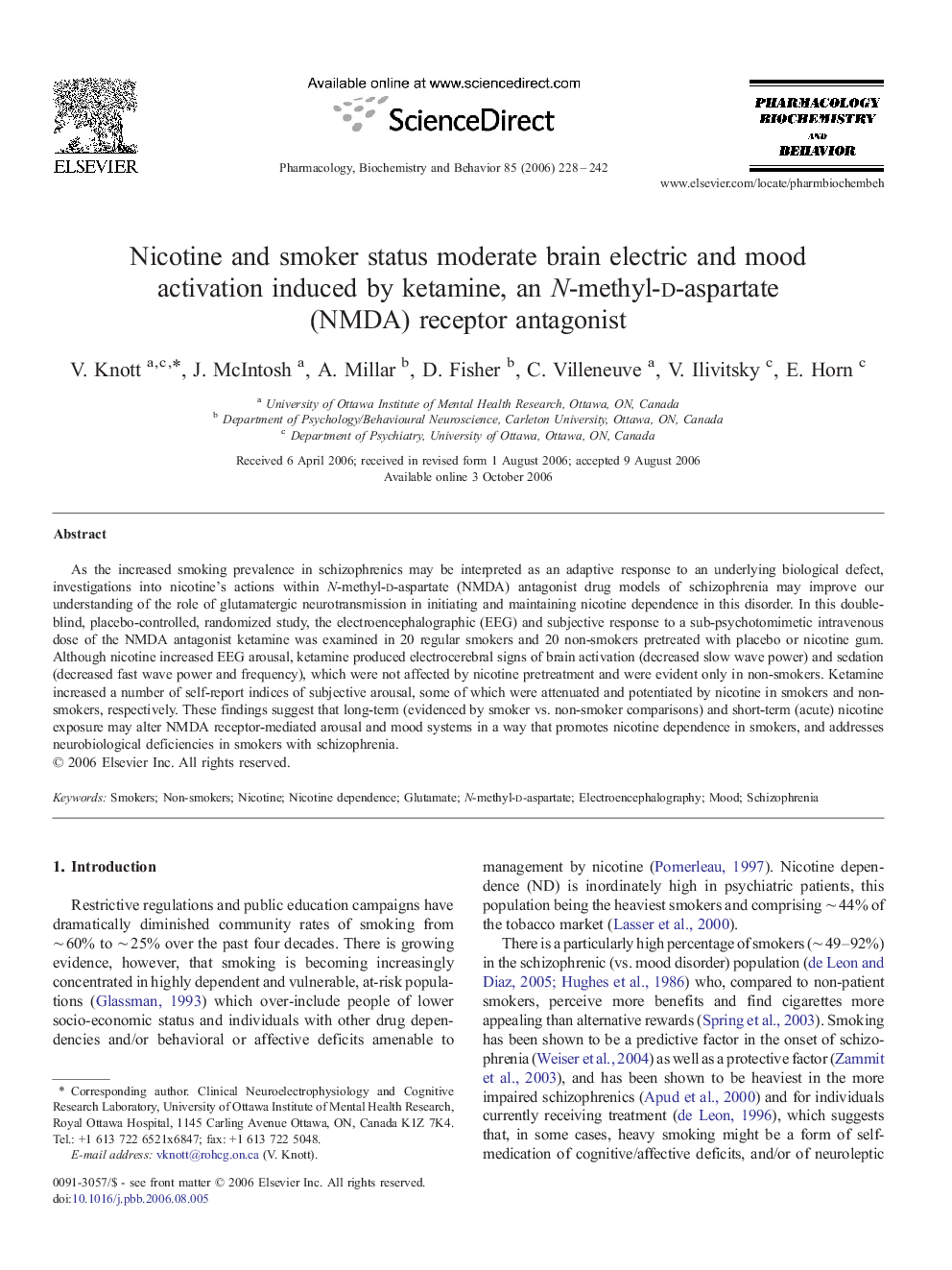| Article ID | Journal | Published Year | Pages | File Type |
|---|---|---|---|---|
| 2014506 | Pharmacology Biochemistry and Behavior | 2006 | 15 Pages |
Abstract
As the increased smoking prevalence in schizophrenics may be interpreted as an adaptive response to an underlying biological defect, investigations into nicotine's actions within N-methyl-d-aspartate (NMDA) antagonist drug models of schizophrenia may improve our understanding of the role of glutamatergic neurotransmission in initiating and maintaining nicotine dependence in this disorder. In this double-blind, placebo-controlled, randomized study, the electroencephalographic (EEG) and subjective response to a sub-psychotomimetic intravenous dose of the NMDA antagonist ketamine was examined in 20 regular smokers and 20 non-smokers pretreated with placebo or nicotine gum. Although nicotine increased EEG arousal, ketamine produced electrocerebral signs of brain activation (decreased slow wave power) and sedation (decreased fast wave power and frequency), which were not affected by nicotine pretreatment and were evident only in non-smokers. Ketamine increased a number of self-report indices of subjective arousal, some of which were attenuated and potentiated by nicotine in smokers and non-smokers, respectively. These findings suggest that long-term (evidenced by smoker vs. non-smoker comparisons) and short-term (acute) nicotine exposure may alter NMDA receptor-mediated arousal and mood systems in a way that promotes nicotine dependence in smokers, and addresses neurobiological deficiencies in smokers with schizophrenia.
Keywords
Related Topics
Life Sciences
Biochemistry, Genetics and Molecular Biology
Biochemistry
Authors
V. Knott, J. McIntosh, A. Millar, D. Fisher, C. Villeneuve, V. Ilivitsky, E. Horn,
